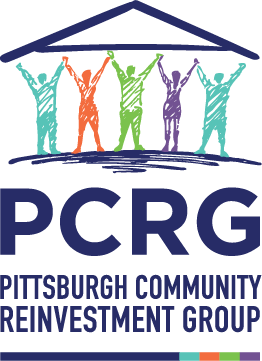Pittsburgh City Council Happenings
Pittsburgh City Council is navigating key debates on housing and community development, with inclusionary zoning (IZ) and the Registered Community Organization (RCO) program at the center. Council recently voted 5-4 to send an alternative citywide inclusionary zoning plan, proposed by Councilwoman Erika Strassburger, back to the Planning Commission for review.
Mayor Ed Gainey’s original proposal, recommended by City Planning in January, would have required affordable units in nearly all new residential developments. The Strassburger amendment shifts to a voluntary model, offering additional tax incentives for developers who include affordable units. Other changes include:
Reducing the affordability term from 35 to 20 years
Allowing developers to contribute to a “city housing fund” instead of building affordable units
While the final decision may extend beyond the Gainey Administration, the debate underscores Pittsburgh’s ongoing challenge of balancing housing supply with affordability.
The Registered Community Organization (RCO) program is also under review. Legislation introduced by Theresa Kail-Smith to temporarily pause enforcement of the program has been delayed until late November, with revisions aimed at strengthening the program rather than suspending it. Council discussions highlighted that community meetings for development projects should focus on substantive changes, rather than minor work like window replacements.
Councilman R. Daniel LaValle proposed that RCOs take a stronger “back-end” role in development review, including the authority to support or oppose projects after initial evaluation. Council also recognized challenges in neighborhoods with overlapping RCOs, which can confuse residents and dilute representation. Clarifying boundaries and engagement standards will enhance transparency and accountability as IZ and RCO reforms move forward.
State-Level Budget Impasse
Pennsylvania is now over four months past the June 30 budget deadline, with no agreement in sight. The standoff reflects disagreements over the size and priorities of the next spending plan.
Gov. Josh Shapiro proposed a $51.6 billion budget, emphasizing education, housing investments, and tax relief.
The Pennsylvania House of Representatives passed a $50.25 billion plan, partially compromising the governor’s proposal.
The state Senate approved $47.9 billion, effectively freezing current spending and limiting new investments.
The differences highlight the political impasse: the governor and House support new investments and additional revenue sources, including recreational cannabis and skill games, while the Senate favors spending restraint and minimal growth. Meanwhile, payments to schools, local governments, and community service providers are delayed, leaving many organizations in limbo.
Federal Government Shutdown
As of October 1, 2025, the U.S. federal government entered a shutdown after Congress failed to pass a continuing resolution. The Senate has held multiple votes on a “clean” resolution, with Pennsylvania Senator John Fetterman breaking with his party to vote alongside Republicans. The House has not been formally recalled.
The shutdown has caused operational and financial disruptions, with many federal employees unpaid or furloughed, and reports of potential layoffs. Social programs like SNAP which stands for the Supplemental Nutrition Assistance Program, are impacted this month, including temporary reductions in benefits, putting additional strain on low-income households nationwide.
Some Senate Republicans and Democrats have proposed emergency short-term funding, but broader agreements remain stalled. Democrats warn that Affordable Care Act (ACA) subsidies are unfunded, which could increase health care costs for millions. The impasse strains states, municipalities, and nonprofits that rely on federal funding for housing, social services, and development programs.
Mortgage Rate Trends
Mortgage rates continue to challenge homeowners and developers, despite a 0.25% Fed rate reduction. In Pennsylvania, the average 30-year fixed mortgage rate is 5.875%, and the 15-year fixed rate is 5.25%. Higher borrowing costs are limiting affordability, slowing housing turnover, and reducing demand.

